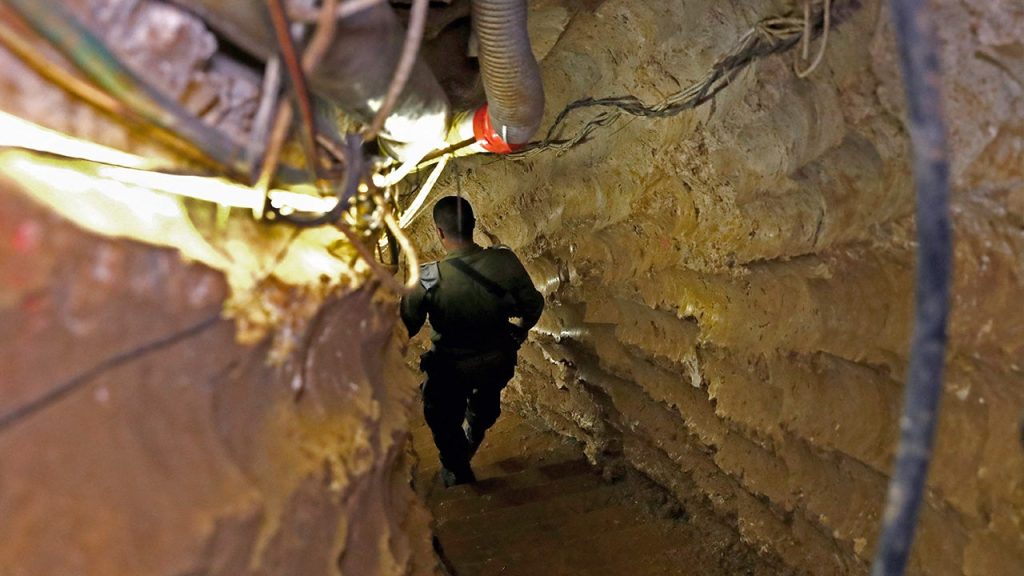Security experts have raised concerns that Israel’s greatest threat lies not in Gaza, but to the north in Lebanon, where Hezbollah has developed a complex tunnel system. The terrorist organization, backed by Iran, has constructed over 100 miles of tunnels in southern Lebanon over the past two decades. These tunnels have played a significant role in arming Hezbollah, providing operational rearmament, maneuvering capabilities, and housing hostages taken by Hamas during the recent war in Gaza. While the Israel Defense Forces (IDF) have eliminated most of Hamas’ tunnels, Hezbollah’s network is believed to be more sophisticated and larger.
Hezbollah is thought to have started constructing its tunnels after the Second Lebanon War in 2006, with assistance from Iran and North Korea. North Korea’s expertise in tunneling, acquired through attempts to drill tunnels near Seoul, inspired Hezbollah’s tunneling efforts. The tunnels discovered in Lebanon have been found to accommodate significant military forces and armaments, following a similar operational blueprint to North Korea’s plans. Hezbollah has built offensive and infrastructure tunnels across southern Lebanon, some of which connect Beirut to the southern region and are equipped with command centers, weapons depots, and missile launch sites.
Hezbollah’s tunnel network, known as the ‘Land of the Tunnels,’ is a vast and sophisticated system that serves as a crucial part of the organization’s defense and offensive capabilities. The tunnels are hidden, camouflaged, and equipped to transport troops, vehicles, and a variety of arms. The organization controls territories, prevents civilians from accessing certain areas, and leverages its influence within the government to keep the tunnel network secret. Despite international peacekeeping forces in Lebanon after the 2006 war, Hezbollah’s power within the country has continued to grow, making it a dominant force that overshadows the weak Lebanese government.
Former IDF Major Gen. Yaakov Amidror has emphasized the urgent need for Israel to take proactive measures against Hezbollah before the organization’s strength becomes overwhelming. With an estimated 50,000 terrorists and extensive influence within Lebanon’s security apparatus, Hezbollah presents a formidable challenge that cannot be ignored. The demographic shift towards a majority Muslim population in Lebanon, particularly among Shiite groups, has further strengthened Hezbollah’s position. Any resistance against Hezbollah within Lebanon’s military or government is viewed as collaboration with Israel, making it difficult to challenge the terrorist organization.
Amidror has suggested that Israel should initiate a war against Hezbollah to counter its growing threat, but acknowledges the devastating consequences such a conflict would entail. The difficulty lies in the fact that Hezbollah operates within civilian populations and uses them as shields, making it challenging to target the organization without causing significant civilian casualties. The complexities of fighting against an organization like Hezbollah, which places its targets within civilian areas, require careful planning and consideration of the potential humanitarian costs. Israel faces a difficult decision in determining how and when to confront Hezbollah’s growing influence and military capabilities.


